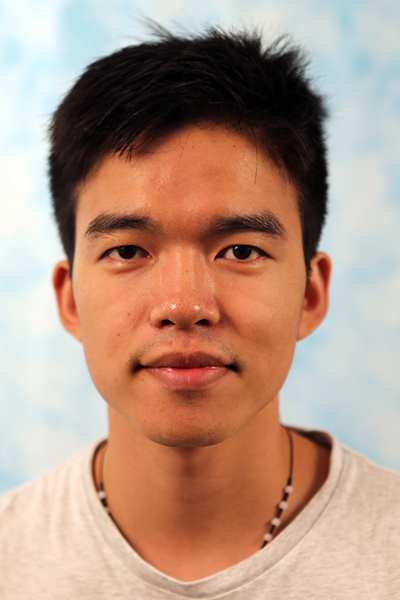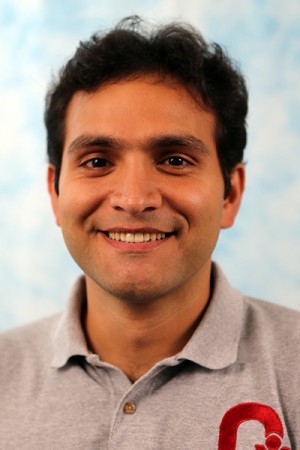Carnegie Mellon University
Learning to Generalize beyond Training
Abstract: Generalization, i.e., the ability to adapt to novel scenarios, is the hallmark of human intelligence. While we have systems that excel at cleaning floors, playing complex games, and occasionally beating humans, they are incredibly specific in that they only perform the tasks they are trained for and are miserable at generalization. One of the [...]
Carnegie Mellon University
Planning and Execution using Inaccurate Models with Provable Guarantees on Task Completeness
Abstract: Modern planning methods are effective in computing feasible and optimal plans for robotic tasks when given access to accurate dynamical models. However, robots operating in the real world often face situations that cannot be modeled perfectly before execution. Thus, we only have access to simplified but potentially inaccurate models. This imperfect modeling can lead [...]
Detecting Image Synthesis — Shallow and Deep
Abstract: The proliferation of synthetic media are subject to malicious usages such as disinformation campaigns, posing potential threats to media integrity and democracy. A way to combat this is developing forensics algorithms to identify manipulated media. In the beginning of the talk, I will discuss how one can train a model to detect photos manipulated [...]
Carnegie Mellon University
Shreyas Srivatchan – MSR Thesis Talk
Zoom link: https://cmu.zoom.us/j/92767964421?pwd=N0NqRXZ5M04zQUhObklyZ3ZTL29jZz09 Meeting ID: 927 6796 4421 Password: password Title: Development of a balancing robot as an indoor service agent Abstract: This work presents a robotic system that can navigate human environments, respond to speech commands, and perform simple tasks. To achieve this, a ballbot-type robot that balances and navigates on a single spherical [...]
Carnegie Mellon University
Constraint-Based Coverage Path Planning: A Novel Approach to Achieving Energy-Efficient Coverage
Abstract: Despite substantial technological progress that has driven the proliferation of robots across various industries and aspects of our lives, the lack of a decisive breakthrough in energy storage capabilities has restrained this trend, particularly with respect to mobile robots designed for use in unstructured and unknown field environments. The fact that these domains are [...]
Deep Learning to Distinguish Recalled but Benign Mammography Images in Breast Cancer Screening
Abstract: Breast cancer screening using the standard mammography exam currently exhibits a high false recall rate (11.6% for women in the U.S.). Only a low proportion (0.5%) of women who were recalled for additional workup were actually found to have breast cancer. As a result of the unnecessary stress and follow-up work from these false [...]
Carnegie Mellon University
Residual Force Control for Agile Human Behavior Imitation and Extended Motion Synthesis
Abstract: Reinforcement learning has shown great promise for synthesizing realistic human behaviors by learning humanoid control policies from motion capture data. However, it is still very challenging to reproduce sophisticated human skills like ballet dance, or to stably imitate long-term human behaviors with complex transitions. The main difficulty lies in the dynamics mismatch between the [...]
Studying the Evolution of Pedestrian Group Space
Abstract: Imagine walking along a busy sidewalk, do you track the movement of every single individual? Or do you simply group pedestrians with similar moving patterns and then track the movement of this group? Grouping is a common behavior in pedestrian navigation and it is typically inappropriate for a robot to cut through the social [...]
Carnegie Mellon University
Unsupervised Learning of the 4D Audio-Visual World from Sparse Unconstrained Real-World Samples
Abstract: We, humans, can easily observe, explore, and analyze the world we live in. We, however, struggle to share our observation, exploration, and analysis with others. This thesis introduce Computational Studio, computational machinery that can understand, explore, and create the four-dimensional audio-visual world. This allows: (1) humans to communicate with other humans without any loss [...]
Carnegie Mellon University
Xueting Li – MSR Thesis Talk
Title: Multi-agent Deception in Attack-Defense Stochastic Game Abstract: In adversarial scenarios, defending oneself by using deception has recently been studied. A popular direction is to design deceptive defense strategies when the defender has complete information of the game and the attacker doesn't. The work on deception so far models the games as a signal game [...]
Carnegie Mellon University
Physical Interaction and Manipulation of the Environment using Aerial Robots
Abstract: There has been an increasing demand for applications that include aerial robots' physical interactions with their environment, such as contact inspection, package pickup, and drilling. The demand has pushed the research groups towards new robot architectures and methods, but only limited research has been done to enable real-world applications. Fully-actuated multirotors were developed to [...]
Carnegie Mellon University
Visual Recognition Towards Autonomy
Abstract: Perception for autonomy presents a collection of compelling challenges for visual recognition. We focus on three key challenges in this thesis. The first key challenge is learning representations for 2D data such as RGB images. 2D sensing brings unique challenges in scale variance and occlusion. Intuitively, the cues for recognizing a 3px tall object [...]
Carnegie Mellon University
Rich Models and Maps in Factor Graphs with Applications to Tactile Sensing
Abstract: Factor graphs offer a flexible and powerful framework for solving large-scale, nonlinear inference problems as encountered in robot perception. Typically these methods rely on simple models that are efficient to optimize. However, robots often perceive the world through complex, high-dimensional observations. They must in turn infer states that are used downstream by planning and [...]
Carnegie Mellon University
Shubhankar Deshpande – MSR Thesis Talk
Where: https://cmu.zoom.us/j/92520469322?pwd=SjlpTVI5MGdtN1VBakFkRG82bStYQT09 Meeting ID: 925 2046 9322 Passcode: 323696 Calendar Invite: https://tinyurl.com/shuby-msr-thesis-talk-invite Title: Towards Interpretable RL — Interactive Visualizations to Increase Insight Abstract: Visualization tools for supervised learning (SL) allow users to interpret, introspect, and gain an intuition for the successes and failures of their models. While reinforcement learning (RL) practitioners ask many of [...]
Carnegie Mellon University
Distributed Navigation of Quadrotor Teams in Uncertain 3D Workspaces
Abstract: A fundamental requirement for realizing scalable and responsive real-world multi-robot systems for time-sensitive critical applications such as search and rescue or building clearance is a motion-planning and coordination framework that exhibits two essential properties. The first property is safety which encompasses aspects relating to kinodynamic feasibility and collision-avoidance. The second property is reliability which [...]
Carnegie Mellon University
Soft actuators by electrochemical oxidation of liquid metal surfaces
Abstract: Soft robotic systems typically operate through the use of soft actuators constructed from highly deformable materials or liquids. Because of their intrinsic compliance, these actuators can achieve elastic resilience and adaptability similar to their biological counterparts. One challenge with engineering these artificial muscles is the selection of soft materials and activation methods while maintaining [...]
The Plenoptic Camera
Abstract: Imagine a futuristic version of Google Street View that could dial up any possible place in the world, at any possible time. Effectively, such a service would be a recording of the plenoptic function—the hypothetical function described by Adelson and Bergen that captures all light rays passing through space at all times. While the plenoptic function [...]














